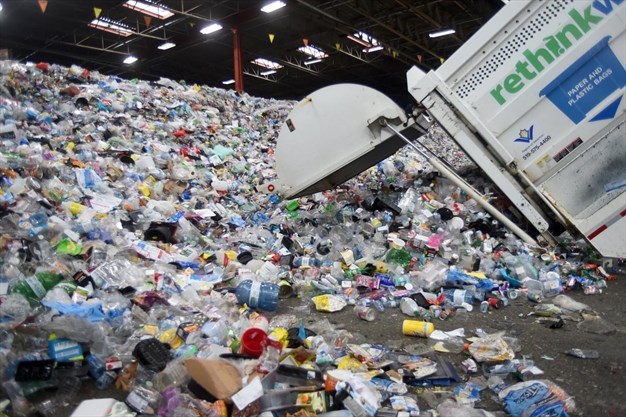
The Ford government’s proposal to ban single-use plastics may be one of the most critical new policies to take action on, and it’s happening right now.
Single-use plastic is used daily by millions of people, and, as the name implies, it is often for one use only. These throwaway products include water bottles, straws, plastic bags and other disposable plastics. These plastics are used once, thrown in the garbage and make their way to a landfill where they stay for more than 450 years.
As the demand from the public to reduce the amount of waste produced continues to increase, the Environmental Registry of Ontario has proposed a plan for dealing with this issue. The proposition highlights its plan to reduce waste going into landfills and increase Ontario’s diversion rates. The government is currently asking for the public’s opinion on this plan — comment is open online until April 20 — and whether it should be implemented. It is clear this plan may be the best way to combat waste production in Ontario and should be supported.
For decades, Canadians have lived a lifestyle that many do in the developed world, known as a throwaway lifestyle. So much of our lives is based around plastics that are not needed. Many products are unnecessarily wrapped in plastic, such as boxes that are already sealed with paper. Other products are more obvious, such as water bottles and plastic bags. There already are initiatives in place to reduce these, such as paying for plastic bags at the grocery store or receiving a discount for bringing your own mug to a coffee shop.
As an environment and business major, it is easy to identify the main economic issues when examining an environmental policy. The main issue that might arise from the proposed ban would be how businesses with products that require wrapping in plastic will adapt to these new regulations. There are many food-related products that need to be wrapped in plastic due to health regulations. This includes cheese, meats and other perishable food items. It would be a challenge for businesses to adapt to these new regulations. New materials, like recyclable or biodegradable products, would need to meet health and safety requirements, and allow for the transportation of goods to and from the stores. This would not be an easy transition; it would require changes at every level of the development and production of these products.
The regulations may also result in price increases as businesses adjust to the changes and develop new products to replace the plastic currently being used. This can be compared to when the minimum wage rises and there are small increases in the price of products sold for retail and food services. At first, the change may seem drastic as most people focus only on how the price increase will impact their wallet on a daily basis. However, as time goes on, it becomes clear that the positives clearly outweigh the negatives. With a higher minimum wage, there is a higher income for families and individuals, leading to greater quality of life. Similarly, with reduced plastic waste, we are working toward a cleaner, less polluted Earth.
If this proposed policy is approved, it will take time for society to catch up and change its values to reflect the new norms. Many daily routines are dependent on having the ability to go through a drive-thru and throw away the containers or buy water bottles to take on a road trip. This policy will require Canadians to be more conscious of the waste they’re producing.
There has already been a large movement toward reducing waste. It has become popular and trendy to use paper straws, bring your own bags to grocery stores, buy in bulk and buy products with less plastic. Many businesses have already taken advantage of these trends and are increasing their profits doing so.
However, plastic consumption is still increasing in Canada and this new policy will force both businesses and consumers to adapt and reduce their consumption. The government is asking for public opinion now, and action needs to be taken before the policy is reviewed within the next few weeks.

